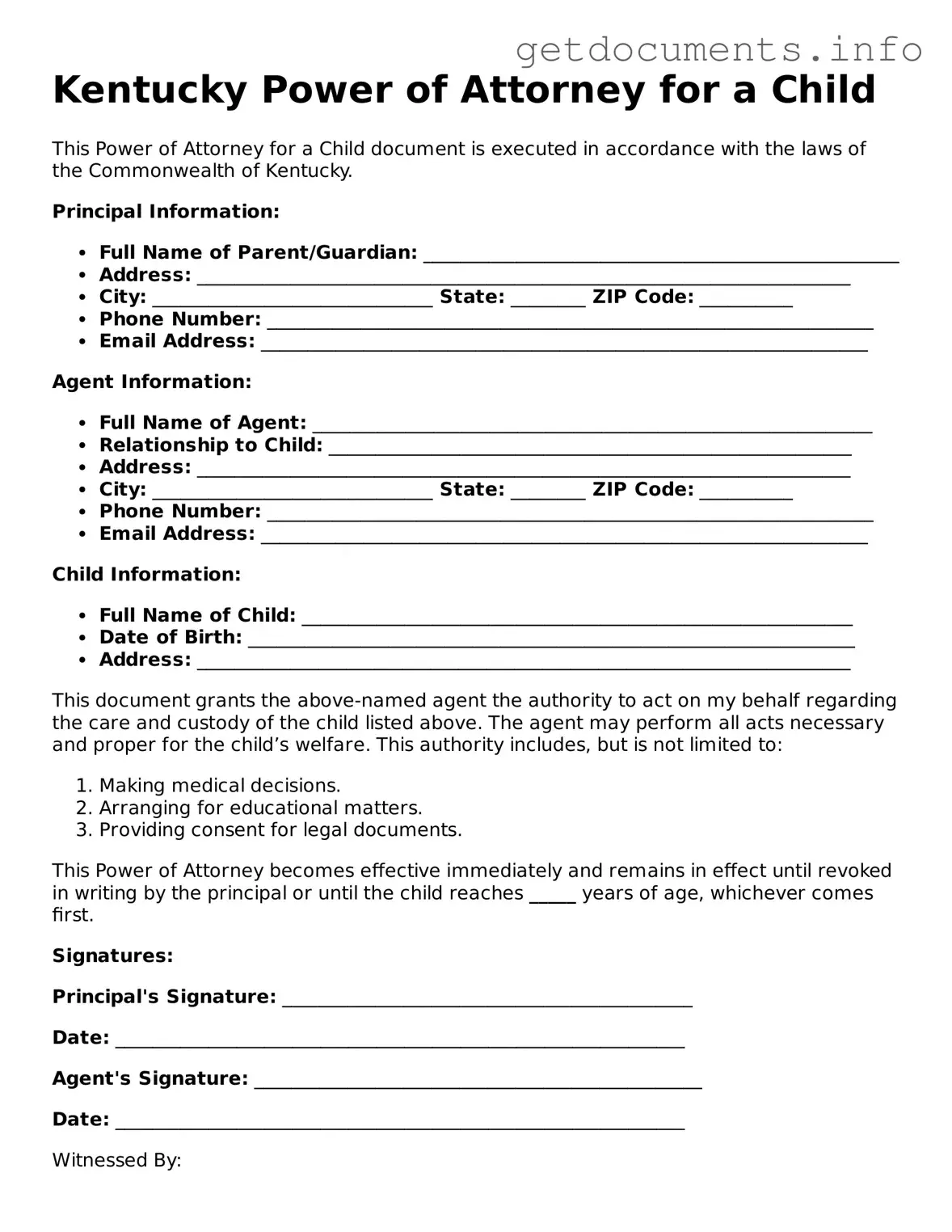Free Power of Attorney for a Child Template for Kentucky
The Kentucky Power of Attorney for a Child form is a legal document that allows a parent or guardian to grant another individual the authority to make decisions on behalf of their child. This form can be particularly useful in situations where the parent is unavailable or unable to care for their child temporarily. To ensure your child's needs are met, consider filling out this form by clicking the button below.
Access Power of Attorney for a Child Editor

Free Power of Attorney for a Child Template for Kentucky
Access Power of Attorney for a Child Editor
Got places to be? Complete the form fast
Fill out Power of Attorney for a Child online and avoid printing or scanning.
Access Power of Attorney for a Child Editor
or
⇩ PDF File
